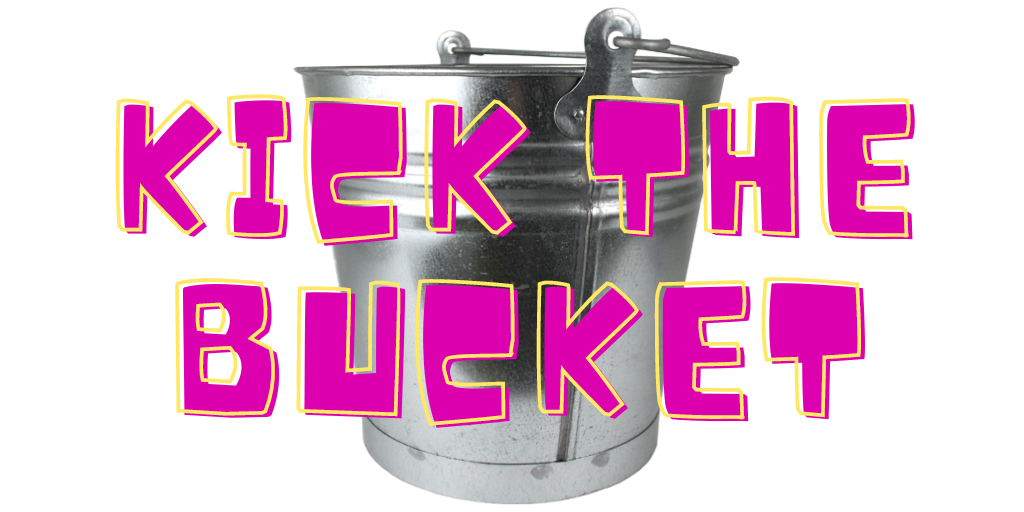The term “kick the bucket” is a colloquial idiom that means to die. It is considered a euphemism for death, as it is a less direct and more informal way of saying “pass away” or “expire” or “die.”
It is an informal term, which means that it should not be used in formal writing or situations where it is important to be respectful of the deceased. The term is often used in a humorous or lighthearted way, but it can also be used in a more serious context. For example, someone might say that their old car finally kicked the bucket, or that their grandfather kicked the bucket peacefully in his sleep, although that might be considered disrespectful.
It is important to note that the term “kick the bucket” should be used with caution, as it can be offensive to some people. It is always best to be mindful of your audience and the context in which you are using the term.
The origin of “kick the bucket”
There are a few different theories about the origin of the term “kick the bucket,” but the most likely explanation is that it comes from the way that animals were slaughtered in the past. Animals were often hung upside down by their feet from a beam, and as they struggled and died, they would kick.
Pig Yokes
Many experts on the history of words agree that the phrase “kick the bucket” comes from a type of yoke that was used to hang pigs by their hind legs so that they could be slaughtered. This yoke was particularly common in the county of Norfolk in England. As the pigs struggled and died, they would kick the yoke, which is why the phrase came to mean “to die.”
The French “buquet”
Another possible origin of the phrase is from the Old French word “buquet,” which means “balance.” This word was used to describe the beam that was used to hang pigs from. When the yoke was raised on a pulley, it resembled a bucket being lifted from a well. This may also be why the phrase came to mean “to die.”
The gallows
Another theory is that the term comes from a type of gallows that was used in the 18th century. This type of gallows had a platform that would drop out from under the condemned person, causing them to fall and hang. The platform was known as a “bucket,” and so the term “kick the bucket” came to be used to refer to hanging.
Criminal suicides
There is a more interesting (but probably fake) story about the origin of the phrase. This story says that criminals would stand on a large bucket with a noose around their neck and kick away the bucket when they were ready to die.
The gangster angle
It has been proposed that in the roaring twenties Chicago gangsters would punish “rats” by tying them to a heavy chair with their feet in a bucket filled with wet cement. The victims struggled and kicked the bucket. When the cement had hardened, the victim’s body was dumped in Lake Michigan.
Regardless of its origin, the term “kick the bucket” is now one of the most common idioms used in English to talk about death. It is a versatile term that can be used in a variety of contexts, from humorous to serious.

Kick the bucket
Ways of using the idiom “kick the bucket”
It can be used to describe death as a natural process that happens to all living things. It can be used to acknowledge the inevitability of death without being overly morbid or serious. For example, someone might say “I’m not afraid of death. I’ll just kick the bucket when it’s my time.”
The term can also be used to describe death as a relief from pain or suffering. For example, someone might say “My grandfather was in a lot of pain, so it was a relief when he finally kicked the bucket.”
The term can also be used to talk about death in a humorous or lighthearted way. For example, someone might say “I’m so tired, I could just kick the bucket.” or “My car is so old, it’s about to kick the bucket.”
Other euphemisms that mean the same thing as “kick the bucket”
- bite the dust
- buy the farm
- cash in one’s chips
- cease living
- croak
- expire
- pass away
- pass on
- take one’s last breath
- yield the ghost




Leave a Reply
Want to join the discussion?Feel free to contribute!